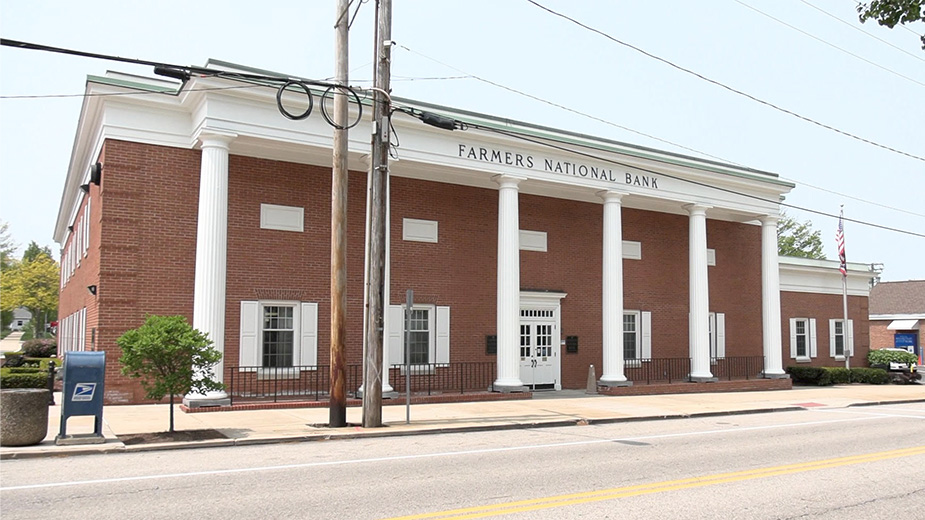Business Finds Value in Recycling Office Paper
YOUNGSTOWN, Ohio — The importance of recycling is a concept ingrained in Claudia Kovach when she was in grade school.
As a child, she recalls, she used to take white paper recycled from her family’s company, City Machine Technologies Inc., to school to be used there. Her mother, the late Joan Kovach, who launched CMT’s recycling program, also kept a compost pile.
Today Kovach, vice president of CMT, oversees her company’s office recycling program. Her grandparents grew up during the Great Depression and instilled in her mother the need to recycle, reuse items and save, she says.
CMT is one of some 450 companies that participate in the office-recycling program the Mahoning County Green Team manages. The county program has formally been in place since 2005. Before then, the county had a program that involved some area nonprofits and government agencies, recalls operations coordinator Mary Gresh.
“It’s a good opportunity for people to get rid of old files, manila file folders, that type of thing,” Gresh says. The program accepts all kinds of paper: shredded paper, newspapers and magazines, phone directories, catalogs and junk mail, as well as bottles, cans and plastic.
At many companies, people think recycling is mostly the reuse of bottles and cans, she says. “That’s what they think that they mostly generate. But once we set the program up, they find that there’s a lot more that they can recycle,” she continues.
Associated Paper Stock Inc. in North Lima takes in approximately 3,000 pounds of office recyclables per day, five days each week, reports Mike Aey, its director of purchasing and marketing of recyclable materials. The company collects white office paper, envelopes, newspapers, manila envelopes – even some construction paper.
“If it’s paper and it tears, chances are we will find a recycling home for it,” Aey says. That encompasses paper with staples and envelopes with plastic windows. Nearly all junk mail can be disposed of as is, Aey says, which wasn’t always the case years ago.
“When we start a brand-new program at a place, it’s always funny to watch their reactions,” Aey remarks. People at work often don’t recognize how much material is office paper. “They never realized it because they never collected it before,” he explains.
The average office worker generates about two pounds of paper and paperboard per day, and paper constitutes 90% of all office waste. That includes bad photocopies, old memos and reports, and mistakes printed on the laser printer, according to the U.S. Environmental Protection Agency.
In 2012, nearly 87 million tons of the 251 million tons of solid waste generated in the United States was recovered through recycling, EPA reports. Paper and paperboard accounted for more than half, or 51.2%.
At Park Vista of Youngstown, office and campus recycling programs began in 2008, says spokeswoman Beth Ann Tabak. The program came about at the suggestion of Park Vista’s residents, she recalls.
“We do a lot of paper recycling” in the resident and office programs, Tabak says, as well as plastic and aluminum.
Material in the recycling bins is collected three times a week. And trash is now collected only twice a week from Park Vista’s five dumpsters, down from the previous three times per week.
Many companies are driven by a desire “to do the right thing” and help the environment by recycling. “They know that it’s their responsibility,” the Green Team’s Gresh remarks. “It also impacts their waste stream. It can be a significant savings for them when they institute a recycling program,” she adds.
The Mahoning County program has a budget of some $2.3 million, generated by tipping fees at county landfills. Reduced intake resulted two years ago when one county landfill was closed and the remaining landfills taking in less waste. Because of the limited funding, the program is unable to expand beyond the existing participants.
“We had a terrible winter last year,” she says. “It impacted our budget. This winter has been difficult, and it’s hard to transport from the East Coast when the weather’s like this.”
The Youngstown Air Reserve Station in Vienna Township touts a diversion rate of about 45%, the quantity diverted from traditional methods of waste disposal, such as landfills, via recycling, according to Greg Wykle, environmental protection specialist there. Last year, the base recycled about 30 tons of cardboard and paper and a total of 98 tons of materials that included scrap metals and wood pallets.
“It’s a constantly evolving program,” Wykle remarks.
The airbase in Trumbull County has had a recycling program in place since shortly after he arrived in the early 1990s, he says. The U.S. Air Force has tried to take the lead on recycling within the Department of Defense. “The Air Force has been promoting recycling for a long time,” he says.
Base personnel are “very supportive of the program,” he adds. “What I try to do is make it as convenient as I can so people are more likely to participate.”
The impetus behind launching an office-recycling program at the Jewish Community Center, says the executive director of Youngstown Area Jewish Federation, Sandy Kessler, was “being good environmental stewards. Everybody should assume responsibility and obligation to do what they can for the environment.
“Part of what we do here is social education,” he continues. “We make it very obvious to even our members.” Recycling bins are stationed throughout the offices and the community center. The organization used to recycle cell phones, batteries and inkjet cartridges, but stopped after retailers launched programs to collect those items.
The recycling program is going well, Kessler reports. Recyclables are picked up weekly. “The guy that comes here probably brings four of the 50- or 60-gallon plastic containers and fills four of them up every time,” he says.
At Gasser Chair Co. in Youngstown, its program was launched after owner Mark Gasser toured a landfill several years ago, recalls Joy Busko, supply chain manager, who manages the company’s program.
“It just stuck in his mind,” she says. Since that visit, his goal has been to make the company more “green.”
Gasser employees’ response has been strong. “Everybody here is doing their best to make sure we’re getting everything in the right slots,” Busko says.
Calls to Associated Paper about instituting an office-recycling program often aren’t driven entirely by altruism, Aey concedes. “It’s because their garbage bills are going up so much,” he says. “I’m sure a lot of people are doing it because it’s a good thing to do.” Then he adds, many calls are prefaced with the explanation that the person in charge said costs need to be cut.
“Even if it’s a program we have to go in and charge for,” he says, the overwhelming majority of the time that cost is “drastically less than what it would cost for them to throw the material away.”
Says CMT’s Kovach, “If we didn’t recycle I would need bigger dumpsters.” While unable to provide specific numbers, she acknowledges her company saves a lot on its waste disposal bill because of the recycling program. “There’s a lot of paper that’s recycled that does not end up in our trash,” she says.
The Jewish Center’s Kessler knows that the recycling effort has reduced the frequency its dumpster is emptied – and its waste going to landfills reduced by about 200 gallons each week. “So it’s significant,” he says, but that benefit is rarely discussed anymore.
“The message we want to send is of environmental stewardship,” he says. “And that it’s the right way to act.”
Copyright 2024 The Business Journal, Youngstown, Ohio.



